To be immortal is commonplace; except for man, all creatures are immortal, for they are ignorant of death; what is divine, terrible, incomprehensible, is to know that one is immortal.
JORGE LUIS BORGESMay Heaven exist, even if my place is Hell.
More Jorge Luis Borges Quotes
-





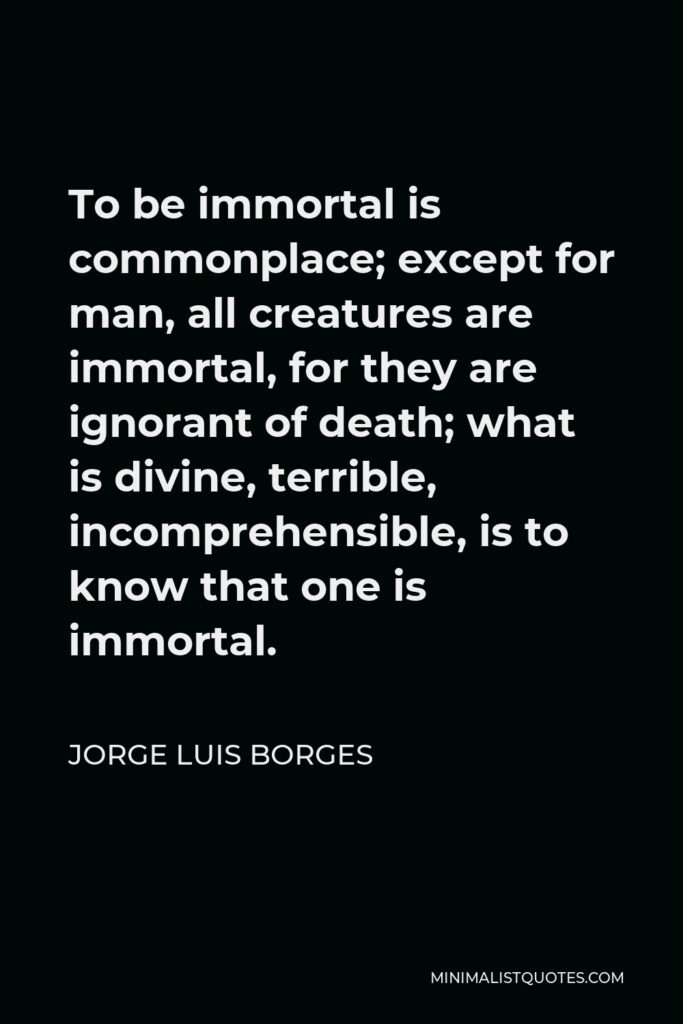

-







I cannot sleep unless I am surrounded by books.
JORGE LUIS BORGES -







Doubt is one of the names of intelligence.
JORGE LUIS BORGES -





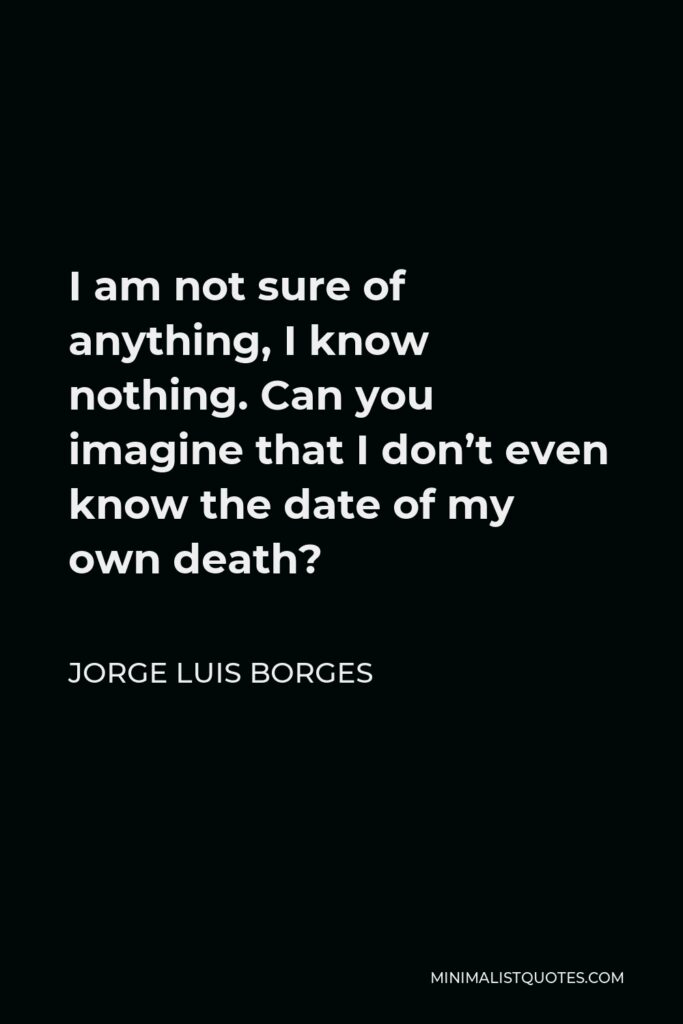

I am not sure of anything, I know nothing. Can you imagine that I don’t even know the date of my own death?
JORGE LUIS BORGES -





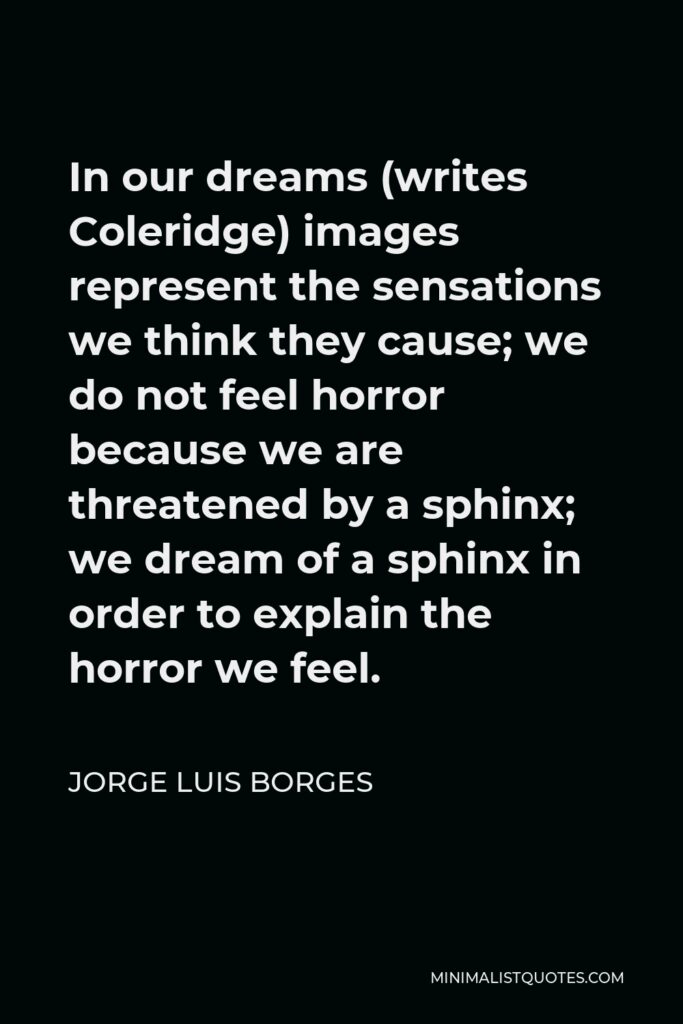

In our dreams (writes Coleridge) images represent the sensations we think they cause; we do not feel horror because we are threatened by a sphinx; we dream of a sphinx in order to explain the horror we feel.
JORGE LUIS BORGES -





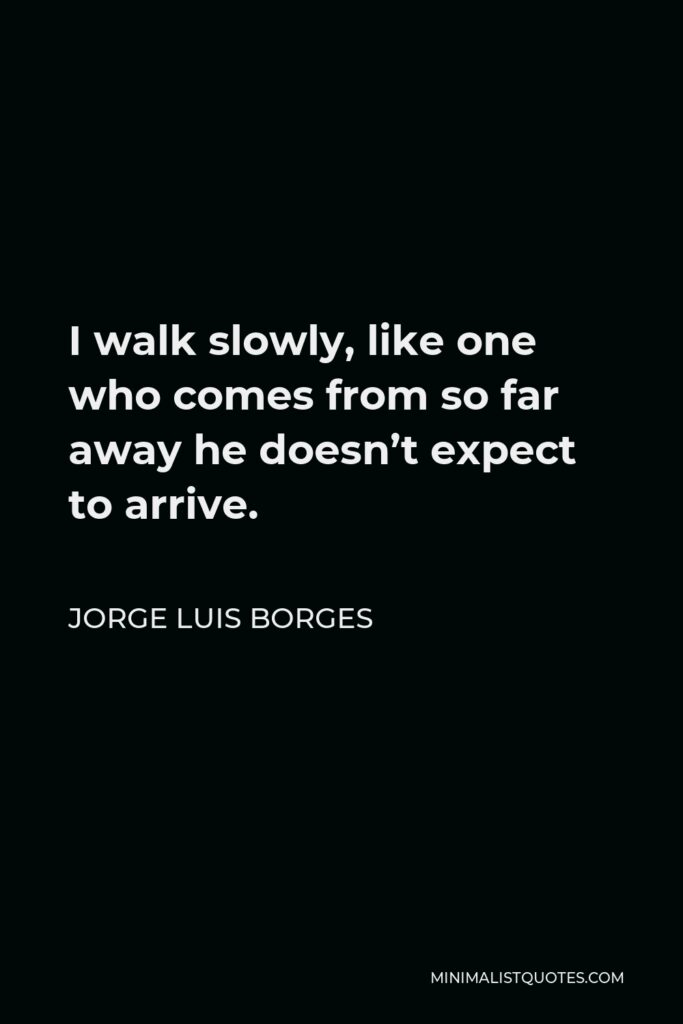

I walk slowly, like one who comes from so far away he doesn’t expect to arrive.
JORGE LUIS BORGES -







I have always come to life after coming to books.
JORGE LUIS BORGES -







Your unforgivable sins do not allow you to see my splendor.
JORGE LUIS BORGES -







A writer’s work is the product of laziness.
JORGE LUIS BORGES -





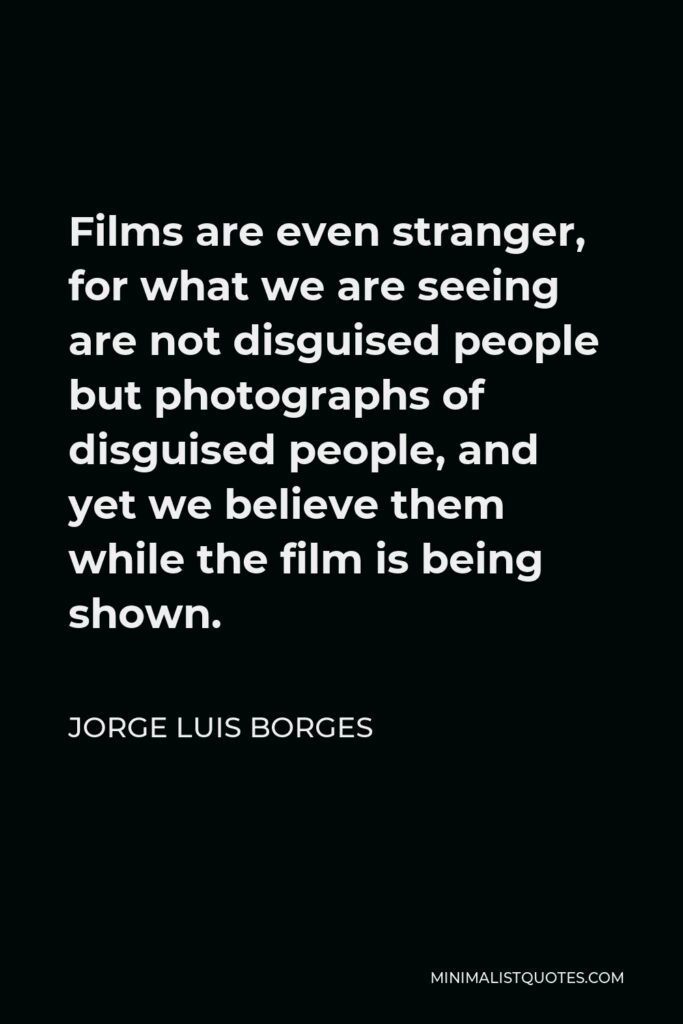

Films are even stranger, for what we are seeing are not disguised people but photographs of disguised people, and yet we believe them while the film is being shown.
JORGE LUIS BORGES -







I think of reading a book as no less an experience than travelling or falling in love.
JORGE LUIS BORGES -





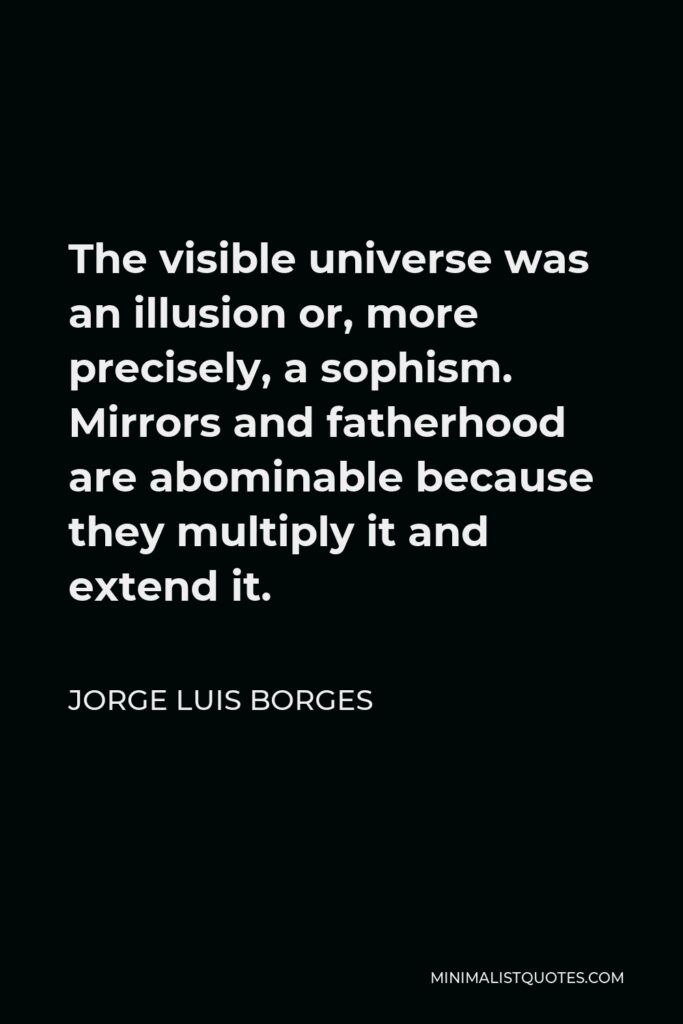

The visible universe was an illusion or, more precisely, a sophism. Mirrors and fatherhood are abominable because they multiply it and extend it.
JORGE LUIS BORGES -





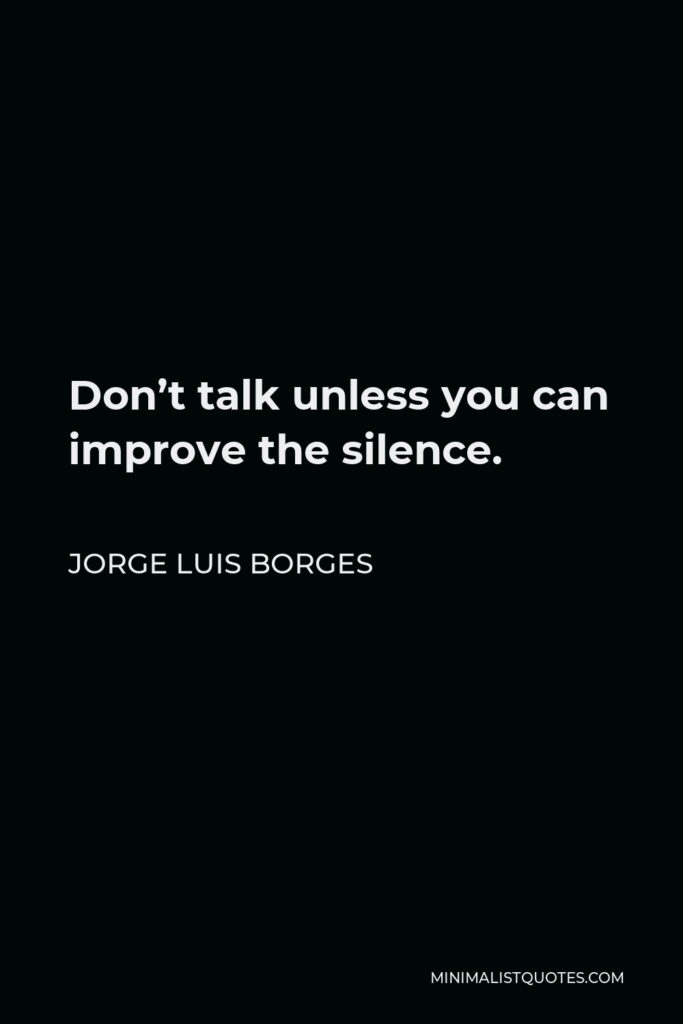

Don’t talk unless you can improve the silence.
JORGE LUIS BORGES -





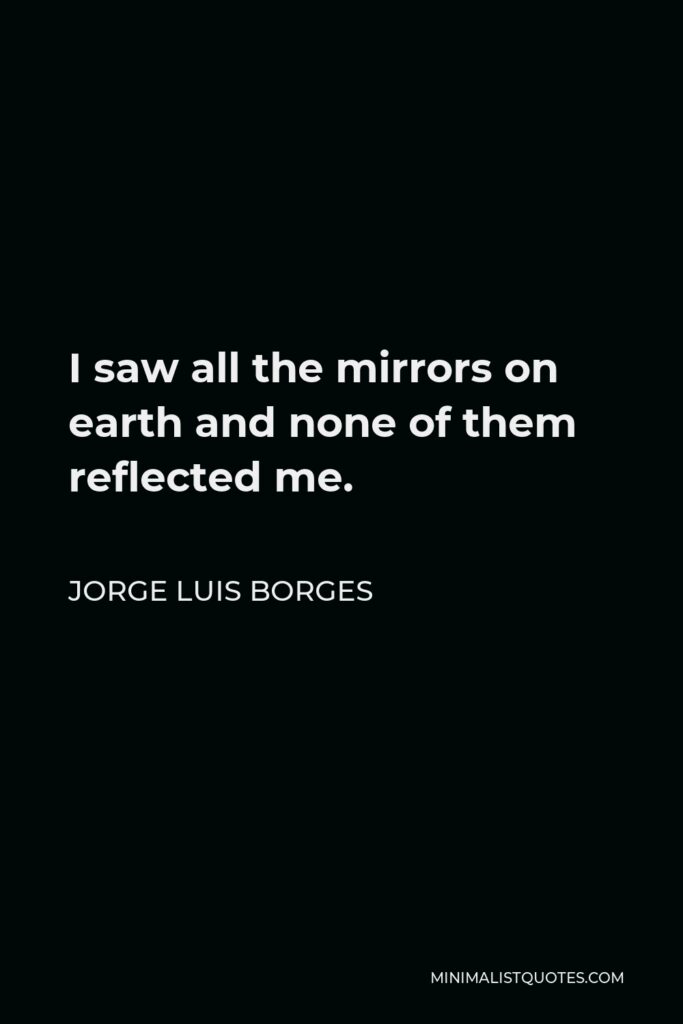

I saw all the mirrors on earth and none of them reflected me.
JORGE LUIS BORGES -







I think that the reader should enrich what he is reading. He should misunderstand the text; he should change it into something else.
JORGE LUIS BORGES -







What I’m really concerned about is reaching one person. And that person may be myself for all I know.
JORGE LUIS BORGES







